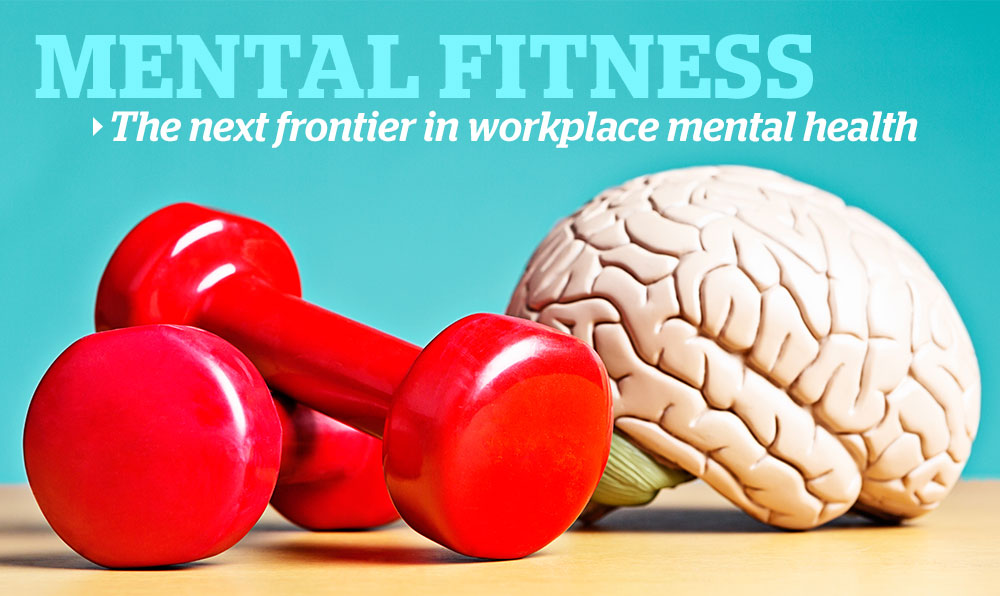

Features
Columns/Blogs
Mental Health
Mental fitness requires intentionality: Monitor your charges and drains
By Bill Howatt

EDITOR’S NOTE: ‘Mental Fitness: The next frontier in workplace mental health’ is a weekly series, in partnership with Dr. Bill Howatt of Howatt HR Consulting in Ottawa. This series takes a deeper look at mental fitness — an approach to prevent mental harm and promote mental health.
Like physical fitness, mental fitness requires intention, and enhancing it requires motivation, action and accountability. There is no magic pill for mental fitness that will make a person mentally fit.
I am seeing more employers purchasing mental fitness apps, thinking they will make people mentally fit. But buying a mental fitness app is no different than buying a piece of gym gear. Having something to achieve a desired outcome requires doing something to achieve it.
We need to stop making the improvement of mental fitness complicated — it does not have to be.
I have created content for a mental fitness app and I know that and 25 cents will not have any positive impact unless the owner decides to use it regularly.
Factors that can predict a person’s mental health include their confidence and comfort in meeting the demands of their day-to-day life. When they perceive they have the resources to meet those demands, they are more likely to experience contentment and calm. Feeling comfortable with thoughts and emotions allows them to experience happiness and internal peace.
Why this microskill matters
Whether you are an employee or employer, learning to cope better with different kinds of life stress (for example, financial stress) and understanding how to find more happiness is good for business.
- The Canadian Payroll Association’s 2019 National Payroll Week survey of employed Canadians found that 43 per cent of workers are so financially stressed, that their performance at work is suffering. They also estimate that financial stress costs the Canadian economy $16 billion a year in lost productivity.
- The University of Warwick in the United Kingdom revealed in one of its studies that happy workers are up to 12 per cent more productive than unhappy professionals.
- And the Harvard Business Review concluded that happy employees have 31 per cent higher productivity.
Mental fitness tips
A dead battery won’t start a car. To get the vehicle moving you need to charge the battery. Kicking, threatening, begging or bribing won’t get the car moving again.
Humans are no different — we need a source of power to get moving. Our charge comes from rest, sleep, food, water and positive behavioural, cognitive and emotional experiences.
Unwanted stress drains our battery, so we need to continually recharge it, just as the alternator recharges the car’s battery as we drive. If a warning light indicates the alternator is not operating, we know we must head for a repair garage.
A good start for many is becoming more mindful of what they are doing to recharge their emotional battery.
Tracking charges and drains
- Collect charges and drain data daily: Take two minutes at the end of the day to list your top two drains and charges in your daily log and score their impact. Then take your total charge and subtract your total drains to determine what is in your battery at the end of your day.
| Top two charges | Perceived charge 1 to 10 | Top two drains | Perceived drain 1 to 10 |
| 1 | 1 | ||
| 2 | 2 | ||
|
Total charges |
Total drains |
||
| Reflection: Based on your score, what is one thing you will focus on tomorrow? | |||
- Begin a new day with intention: Every day presents a new opportunity to make better micro-decisions that can create a positive charge. There will always be drains.
Four tips that support creating positive charge:
- Healthy positive charges come from making space each day to do something that makes us feel good. This is healthy for us and does not hurt anyone else.
- Create daily plans that include prosocial behaviours such as exercise, eating healthy, sleep, hobbies and positive social connections. The key is to not hope they will happen; plan for them.
- You do not need to spend a massive amount of time. Doing a few things each day — such as keeping a log — can help create plans for what you will do tomorrow that can have a positive impact.
- Accept that by ignoring your charge each day things will not get better. The longer you go on feeling your charge is low, the more likely you will feel your mental health is at risk.
 Dr. Bill Howatt is the Ottawa-based president of Howatt HR Consulting and the former Chief of Research and Workforce Productivity at The Conference Board of Canada.
Dr. Bill Howatt is the Ottawa-based president of Howatt HR Consulting and the former Chief of Research and Workforce Productivity at The Conference Board of Canada.
If there is a particular microskill or topic you would like to see Dr. Howatt write on that supports employees’ mental health in the workplace, please send your request to Talent Canada editor Marcel Vander Wier.
Print this page